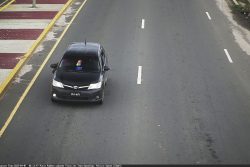A recurring theme in the broader political criticism of the Burnham and Hoyte administrations by the then opposition People’s Progressive Party (PPP) had to do with what the PPP felt was the high cost to the nation of financing the diplomatic service as it related to frequent travel, salaries and allowances in addition to the residential costs of keeping a number of diplomats at post in foreign counties. The late Dr Cheddi Jagan commented from time to time on what he felt was the disparity between the high cost of traipsing the diplomatic circuit, so to speak, and the real returns derived by the country therefrom. In the view of the late President the sums didn’t add up.
The customary official response used to be that the returns from financial expenditure on some types of foreign policy pursuits (the Guyana/Venezuela border controversy cannot often not be easily measurable. This is definitely the case, for example, of the diplomatic legwork associated with it when it is a matter that is inextricably bound up with the critical issue of the sovereignty and territorial integrity of our country).
An extension of the discourse about the cost to the public treasury of running the Foreign Service has been the publicly and frequently expressed concern here in Guyana and elsewhere in the region over the extent to which governments exercise satisfactory levels of prudence in the management of the public coffers when it comes to the conditions associated with overseas travel by ministers of government. There will always be arguments, for example, regarding the prudence of automatic first class travel for ministers of governments from poor countries like Guyana, the alternative contention being that that poor countries must apply rules to expenditure associated with the cost of overseas travel that are consistent with what the public purse can afford. That is not a perspective that any reasonable person is likely to fault.
In Trinidad and Tobago, for example, where the citizenry is much more inquiring and the government tends to be more forthcoming when it comes public disclosure on issues like the cost of ministerial travel, questions have long been raised about perceived profligate spending by government. Back In November 2015, Prime Minister Dr Keith Rowley, having just entered office, had declared that the predecessor administration had spent TT$250 million on ministerial travel over a five-year period. At the time, Dr Rowley made the point that the privileges associated with ministerial travel ought not to be regarded as “a perk and a junket,” a point that has been made here in Guyana over the years.
Trinidad and Tobago, incidentally, reportedly has an official policy that allows for ministers travelling officially to fly first class as a matter of automaticity. However, late last week Dr. Rowley announced that a government delegation being led by him and which includes his Ministers of Foreign Affairs, Energy, Trade and Industry and which left the twin-island Republic on Sunday for Chile would forego the comfort of first class travel on American Airlines and would instead ‘endure’ the climbdown of Copa Airlines’ Business Class. If not a great deal has been said regarding just how Dr Rowley’s ministers felt about this, the Prime Minister did make the significant point that the Chile trip would cost a third less than what it would otherwise cost if the first class option had been applied.
There will, of course, be instances in the future where, depending on the circumstances, members of Dr Rowley’s Cabinet and other high officials of the Trinidad and Tobago government will travel first class, though it has to be said that the Trinidad and Tobago Prime Minister appears to have set a precedent. The worthwhileness of emulation is at least worthy of consideration here in Guyana where the economy is far less sturdy and where there has been some measure of public debate over the costs to the public treasury associated with official overseas travel and other expenses incurred by ministers and other high level government officials.
The customary official response (and this has applied to successive governments) tends to centre around the argument that high level official travel realizes returns for the country. Frankly, there are times when those returns are far from obvious to the untrained eye and truth be told governments in Guyana have not, traditionally, been inclined to share many of the details (beyond what, frequently, are vague and unhelpful media releases from the standpoint of public education) of those matters with the populace.
No one expects, of course, that our officials and official delegations will arrive at destinations abroad for international engagements under travel conditions that compare with internal flights from Imbamadai to Ogle, though to make an unyielding official argument for ministerial first class travel, wherever the destination and whatever the occasion, is, surely, altogether untenable. In economic circumstances such as ours, decisions on ministerial travel must be underpinned by judgements that have to do with measuring the extent of the monetary investment against the importance of and likely returns from the assignment.
If it is that Dr Rowley is seeking to make the point that we must begin to replace carte blanche decisions on conditions of ministerial travel with more deliberate judgements that take affordability and public spending issues into account, then this is definitely something to which the Government of Guyana should also be giving more than passing thought.








